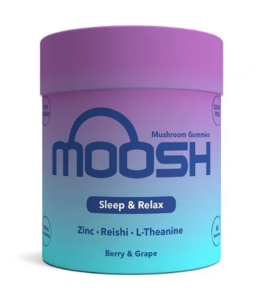What are mushroom gummies?
Mushroom gummies are a convenient and tasty way to incorporate mushrooms into your diet. They usually contain extracts from various functional mushrooms like Lion’s Mane, Reishi, or Chaga, offering potential health benefits in a chewable form. These gummies combine the benefits of mushrooms with sweeteners and flavorings to make them more palatable.
What benefits can I expect from mushroom gummies?
Mushroom gummies are designed to offer a range of benefits depending on the type of mushrooms used. For instance, Lion’s Mane is often included for cognitive support, while Reishi might help with stress reduction and immune support. Each type of mushroom offers unique benefits, and gummies make it easier to include them in your daily routine.
How many mushroom gummies should I take daily?
The recommended dosage of mushroom gummies can vary based on the product and its concentration. It’s best to follow the dosage instructions provided by the manufacturer. Typically, you might start with one or two gummies per day and adjust as needed based on your health goals and how you respond to the product.
Are mushroom gummies safe to consume?
Mushroom gummies are generally considered safe for most people when consumed as directed. However, if you have allergies to mushrooms or are taking medications, it’s wise to consult with a healthcare professional before starting any new supplement. Always check the product’s ingredient list for potential allergens.
Can children take mushroom gummies?
While mushroom gummies are usually formulated for adults, some may be suitable for children, depending on the dosage and ingredients. It’s important to consult with a pediatrician before giving any dietary supplement to children to ensure it’s appropriate for their age and health condition.
Do mushroom gummies have any side effects?
Mushroom gummies are typically well-tolerated, but some individuals might experience mild digestive issues or allergic reactions. If you notice any adverse effects, it’s best to discontinue use and consult with a healthcare professional to determine if the gummies are suitable for you.
How should I store mushroom gummies?
To maintain their freshness and effectiveness, store mushroom gummies in a cool, dry place, away from direct sunlight and moisture. Keeping them in an airtight container can help prevent them from becoming sticky or losing their potency.
Can I take mushroom gummies with other supplements?
Mushroom gummies can usually be taken alongside other supplements, but it’s always a good idea to consult with a healthcare provider if you’re combining them with other dietary or medicinal supplements. They can help ensure that there are no interactions or contraindications with your current regimen.
How do mushroom gummies compare to other mushroom products?
Mushroom gummies offer a convenient and enjoyable way to consume mushrooms, compared to powders or capsules. While powders can be mixed into drinks or foods and capsules offer a no-flavor option, gummies provide a tasty and portable alternative that can be more appealing for those who dislike the taste of mushrooms.
Where can I buy mushroom gummies?
Mushroom gummies are available from various online retailers and specialty health stores. You can find them at health food stores or purchase them directly from the manufacturer’s website. For instance, you can check out the Moosh Mushroom Gummies at House of Shrooms.
I received complimentary products from House of Shrooms in exchange for my review of their Mushroom Gummies. All opinions expressed in this review are my own and based on my personal experience with the product. While I strive to provide an honest and unbiased assessment, it’s important to consult with a healthcare professional before starting any new supplement, especially if you have any health concerns or are taking other medications.
Discover More Magic: Must-Try Products from House of Shrooms
Welcome to the fascinating world of mushroom-based products! Whether you’re intrigued by the health benefits or simply curious about the latest wellness trends, this guide will walk you through the different types of mushroom products you might encounter, their potential benefits, and how they’re regulated in the UK and USA.
Mushroom Capsules
Mushroom capsules are a convenient way to incorporate the benefits of mushrooms into your daily routine. Typically, these capsules contain powdered mushroom extracts and are used to support various aspects of health, from immunity to cognitive function. According to research published by the National Institutes of Health (NIH), mushrooms like Reishi, Lion’s Mane, and Chaga are noted for their potential health benefits. These capsules often offer a standardized dose, which makes them easy to take consistently. Always look for products with third-party testing to ensure quality and efficacy.
Mushroom Coffee
Mushroom coffee blends traditional coffee with powdered mushrooms, like Lion’s Mane or Chaga, to enhance cognitive function and overall well-being. As noted by studies from the University of Illinois and other institutions, these mushrooms can add unique health benefits to your morning brew. Mushroom coffee can provide a gentler energy boost compared to regular coffee, with added benefits like improved focus and reduced stress. It’s worth noting that mushroom coffee should be consumed in moderation, as its effects can vary based on individual tolerance and sensitivity.
Mushroom Drinks
Mushroom drinks are a versatile category that includes everything from ready-to-drink mushroom beverages to mushroom-infused sparkling waters. They offer a convenient way to enjoy the benefits of mushrooms without the need to prepare powders or capsules. Research, including studies from the University of California, indicates that certain mushroom compounds can support immune function and provide antioxidants. These drinks can be a refreshing and healthful addition to your daily regimen, though it’s important to check for added sugars and other ingredients that might affect your overall health.
Mushroom Powder
Mushroom powder is made from dried and ground mushrooms and can be added to smoothies, soups, or even coffee for a health boost. According to the American Mushroom Institute, common mushrooms used in powders include Lion’s Mane for cognitive support, Chaga for its antioxidant properties, and Reishi for stress relief. This versatile product allows for easy integration into your diet and can be a potent way to reap the benefits of mushrooms. However, be cautious with dosages and potential interactions with medications.
Mushroom Extract
Mushroom extracts are concentrated forms of mushroom compounds, often available in liquid or powder form. These extracts can offer more potent doses of mushroom benefits compared to whole powders or capsules. Research from institutions like the Harvard School of Public Health highlights the potential of mushroom extracts for their immune-boosting and anti-inflammatory properties. When choosing mushroom extracts, look for high-quality products with clear sourcing and extraction methods to ensure you’re getting a potent and pure product.
Comparing UK and USA Laws
In both the UK and USA, mushroom products are generally classified as dietary supplements or functional foods rather than pharmaceuticals. However, regulations can differ significantly:
In the UK, mushroom supplements are regulated under the Food Supplements Regulations 2003, which require products to be safe for consumption and properly labeled. The Food Standards Agency (FSA) oversees these regulations, ensuring that claims made on mushroom products are substantiated by evidence.
In the USA, mushroom products fall under the Dietary Supplement Health and Education Act (DSHEA) of 1994. The Food and Drug Administration (FDA) oversees these supplements, but they are not subject to pre-market approval. Manufacturers must ensure their products are safe and properly labeled, but the FDA does not verify the health claims made on these products before they hit the market.
Both regulatory environments emphasize safety and labeling, but the level of oversight and specific requirements can vary, so it’s always good to check local regulations and consult healthcare professionals when integrating new supplements into your routine.

